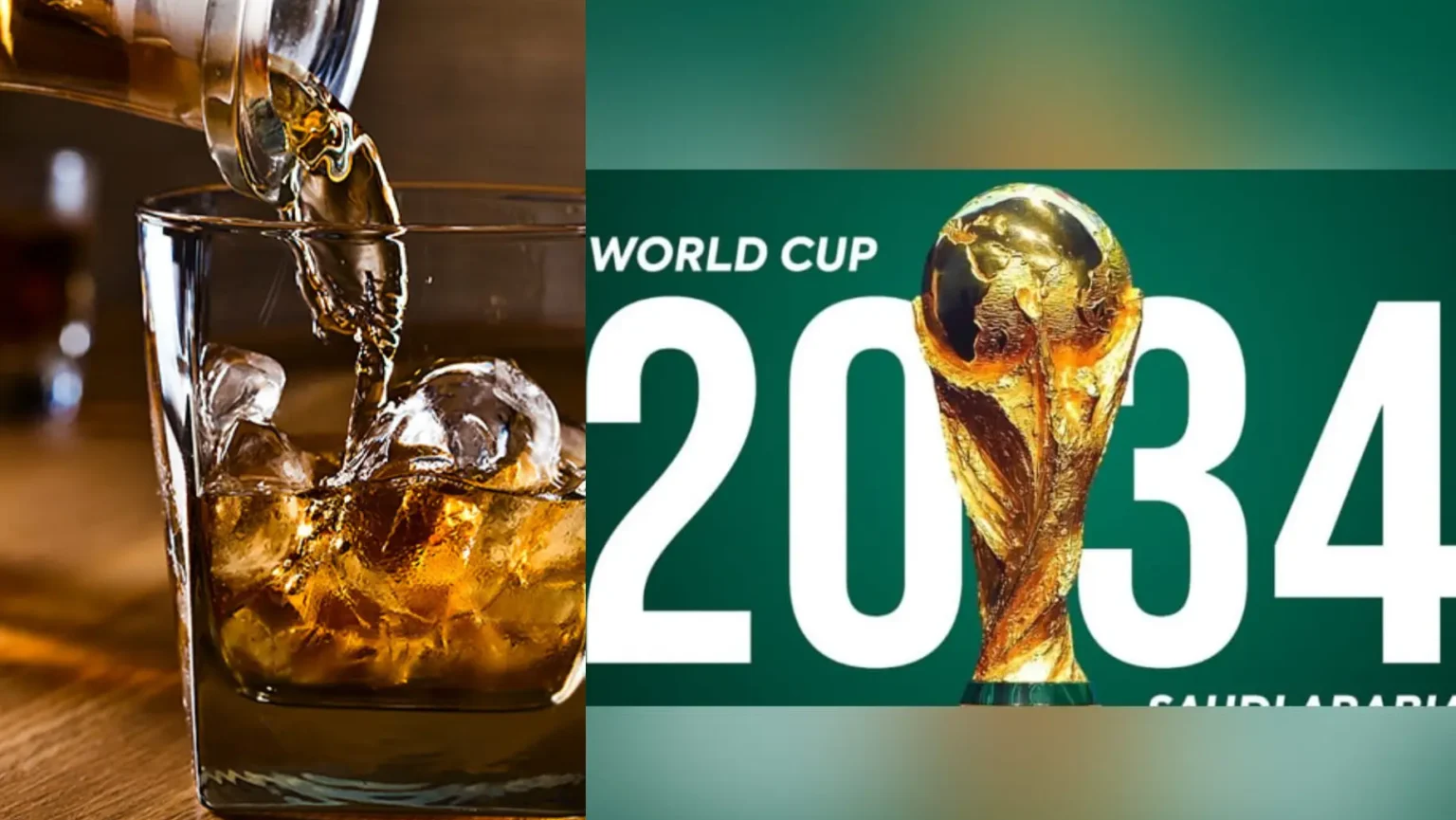Saudi Arabia
Saudi Arabia has officially confirmed that the 2034 FIFA World Cup will be held under strict regulations prohibiting the sale and consumption of alcohol. This decision aligns with the country’s long-standing cultural and religious beliefs, as alcohol has been banned in the Kingdom since 1952.
The announcement has sparked discussions among international football fans, players, and event organizers about the atmosphere of the tournament, given that beer and other alcoholic beverages have traditionally been part of the World Cup experience. However, Saudi officials insist that the event can be just as enjoyable without alcohol.
A Clear Stance on Alcohol Prohibition
Prince Khalid bin Bandar Al Saud, Saudi Arabia’s ambassador to the United Kingdom, confirmed the country’s position during an interview. When asked about the possibility of making exceptions for the World Cup, he firmly stated:
“At the moment, we don’t allow alcohol. Plenty of fun can be had without alcohol—it’s not 100% necessary, and if you want to drink after you leave, you’re welcome to. But at the moment, we don’t have alcohol.”
This statement makes it clear that there will be no special exemptions for the tournament. Unlike previous World Cups, where alcohol was sold in designated fan zones, stadiums, and hotels, Saudi Arabia will maintain its national prohibition laws throughout the event.
How Will This Affect the Fan Experience?
For decades, alcohol has been a major part of football culture, with fans gathering in pubs, bars, and fan zones to celebrate victories and drown their sorrows after defeats. In past tournaments, such as the 2014 World Cup in Brazil and the 2018 edition in Russia, beer companies like Budweiser had massive sponsorship deals, ensuring the availability of alcohol in and around stadiums.
However, in Qatar’s 2022 World Cup, similar restrictions were imposed just days before the event, leading to some backlash from fans and sponsors. Despite the initial frustration, the tournament still proceeded smoothly. Saudi Arabia will likely follow a similar approach but with a more consistent policy from the start.
Many fans traveling from Europe and South America, where drinking is common at football events, may have to adjust their expectations. Instead of beer gardens and open bars, they may experience alternative entertainment options designed to accommodate international visitors.
Saudi Arabia’s Plans for the World Cup
Despite the alcohol ban, Saudi Arabia is promising a world-class tournament with luxurious accommodations, high-tech stadiums, and cultural attractions. The Kingdom has been investing heavily in tourism and infrastructure, with projects like the futuristic NEOM city and the Red Sea resorts aiming to attract international visitors.
The country also hopes to showcase its hospitality and provide fans with a unique experience that highlights its traditions, food, and entertainment. Many hotels and resorts will offer alcohol-free cocktails and high-end beverages as alternatives.
Saudi officials believe that their version of the World Cup will emphasize family-friendly celebrations, creating an environment where all fans—regardless of age or background—can enjoy the tournament safely and respectfully.
Fan Reactions: Mixed Opinions on the Ban
Reactions to the alcohol ban have been mixed. Some football fans argue that banning alcohol takes away from the usual lively atmosphere of the World Cup. Many supporters feel that enjoying a beer at a match is part of the experience, and limiting this could impact their enjoyment.
On social media, some users have expressed disappointment, with comments like:
- “What’s a World Cup without a beer? This is crazy!”
- “Fans should respect local culture, but this is going to be a tough adjustment.”
On the other hand, others support Saudi Arabia’s stance, arguing that football should be about the game itself rather than drinking. Some also believe this could lead to a safer and more family-friendly environment at matches.
One fan commented:
- “It worked in Qatar, so why not in Saudi Arabia? You don’t need alcohol to enjoy football.”
What About Sponsors Like Budweiser?
One of the biggest challenges for FIFA will be managing its partnership with sponsors, particularly beer companies like Budweiser, which have been long-time World Cup sponsors. In Qatar, Budweiser was forced to change its plans at the last minute, leading to reports of frustration and financial losses.
For the 2034 World Cup, FIFA will likely have to renegotiate its sponsorship deals to account for the alcohol ban. Some experts suggest that FIFA may seek alternative beverage sponsors, such as non-alcoholic beer brands or energy drink companies, to fill the gap.
Final Thoughts: Will a Dry World Cup Work?
Saudi Arabia’s decision to maintain its alcohol ban for the 2034 World Cup is a bold move that challenges the traditional football experience many fans are used to. While this may be a disappointment for some, others see it as an opportunity to embrace a different kind of World Cup atmosphere—one that focuses more on culture, family-friendly entertainment, and the game itself.
With nearly a decade to prepare, Saudi Arabia has time to create a tournament that balances tradition with the expectations of global football fans. Whether the alcohol ban will affect attendance and enjoyment remains to be seen, but one thing is certain—this World Cup will be unlike any other.
Do follow gulf magazine on Instagram
for more information click here



